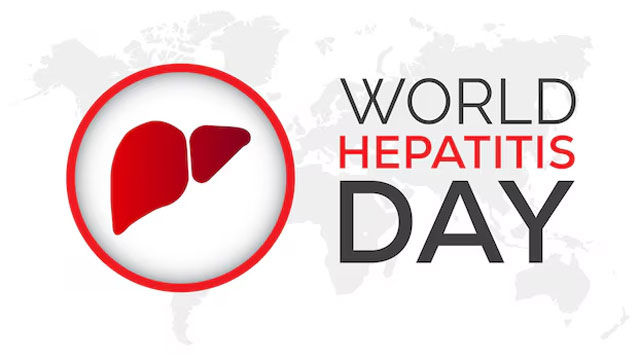Daijiworld Media Network – Geneva
Geneva, Jul 28: World Hepatitis Day is observed annually on July 28 to raise awareness about viral hepatitis, a life-threatening liver disease responsible for severe health complications, including liver cancer. This year’s theme, Hepatitis: Let’s Break It Down, highlights the urgency to dismantle the social stigma, financial burden, and healthcare barriers associated with the disease.
According to the World Health Organisation, 304 million people were living with chronic hepatitis B and C as of 2022, with 1.3 million deaths recorded that year alone.

Dr Catharia Beohme, officer-in-charge for the WHO South-East Asia region, described the ongoing situation as needless suffering. She said hepatitis continues to silently damage the liver and lead to preventable deaths. An estimated 61 million people in the region are living with hepatitis B and 9 million with hepatitis C, yet most remain undiagnosed and untreated.
Viral hepatitis is now the second deadliest infectious disease globally after COVID-19 and is a leading cause of liver cancer.
Hepatitis is an inflammation of the liver caused by viruses or non-infectious agents. There are five main types — A, B, C, D and E. Types B and C are the most dangerous, often leading to chronic illness, liver cirrhosis, and cancer.
While many people show no symptoms, the most common signs include fever, fatigue, jaundice, abdominal pain, nausea, and dark urine.
Hepatitis B is highly infectious and spreads through contact with infected blood or body fluids, unsterile needles, tattooing equipment, or from mother to child at birth.
Despite its severity, hepatitis B is preventable with a safe and effective vaccine, usually given at birth followed by boosters. The vaccine offers near-total protection against the virus.
Diagnosis of hepatitis requires lab testing, as symptoms often overlap with other illnesses. WHO recommends screening in high-risk groups such as pregnant women, blood donors, and people in high-prevalence regions.
In 2022, only 13 percent of infected individuals were aware of their status, and just 3 percent were receiving treatment. Coinfection with HIV is also a concern, though many HIV treatments can help manage hepatitis B.
Health experts are urging a global push for early detection, vaccination, and education to reduce the burden of this deadly disease. On World Hepatitis Day, the message is clear — raising awareness and breaking the silence around hepatitis is the first step toward saving millions of lives.